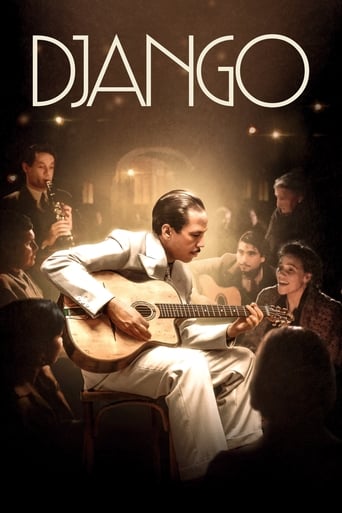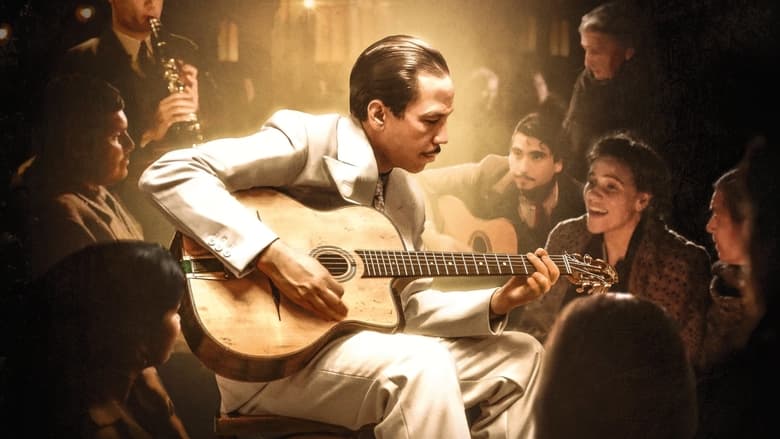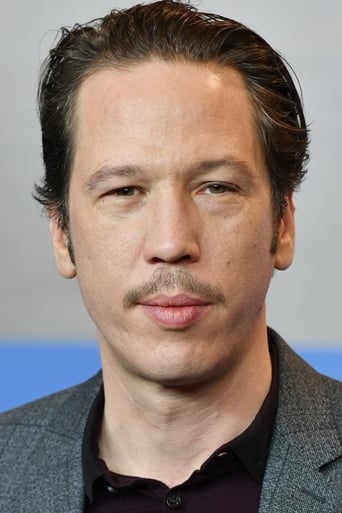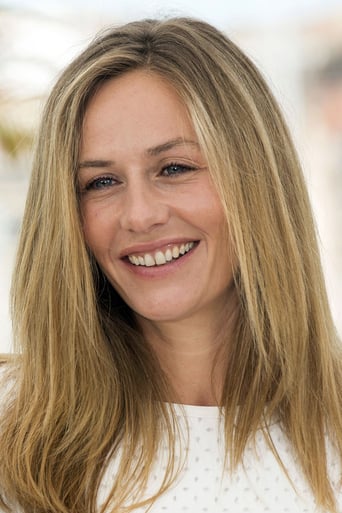Django (2017)
The story of Django Reinhardt, famous guitarist and composer, and his flight from German-occupied Paris in 1943.
Watch Trailer
Cast


Reviews
Django. Director/Writer Etienne Comar (primarily a Producer "Of God and Men" 2010) brings forth yet another amazing untold story about the German occupancy, this time set in Paris. This poignant music filled production chronicles the life of gypsy musician Django Reinhardt (Red Kateb "Zero Dark Thirty" 2012). When Django (who became a renown European Jazz and Gypsy Swing aficionado) and his band "Hot Quintet" is hired to entertain Nazi's in Germany, at a time when Jazz, the Blues and certain percussion instruments and musical beats were forbidden, the event turns hostile and soon his family and friends are forbidden to live their encampment, the young are forced to join the resistance, and soon he flees for his life. Comar starts the film with camera work that is too jumpy and too close to its characters to understand what and why things are happening. However, once he abandons this format, and steps back and establishes the environment (beautiful cinematography by Christophe Beaucarne) and begins to tell the story, the film gains its footing and never lets go. The musical presentation (music by Warren Ellis) in this film, especially the final concert, are mesmerizing and not to be missed. I don't know if Kateb actually performed the various guitar arrangements, but if he did, his performance is to be rewarded. Supporting Django in a successful minor role is his wife Naguine (Bea Playa), his mother Negros (Bombay Merstein) with her spirited personality, his resistance lover Louise de Klerk (Cecile De France) and his various bandmates. I have to say, I was not initially sold on this film. However, when the story of survival presented itself, set against the beautiful music and harsh realities of the WWII Nazi occupancy, I couldn't help but become fully invested in the presentation. This film was screened at the Palm Springs International Film Festival #PSIFF2018
This is story of an exceptional artist stuck in Nazi-occupied France and the treatment of his community of gypsies in the form of an adventure to escape the country. The most enjoyable bits are those in which he plays music with his band in front of Nazi or french audiences, where his style and technique transpires exceptionally well and the people are lifted to a trance. However, the subject of the movie is grim and filmed in no special way. Django Reinhardt is caught between the between a rock and a hard place and though the tale is told like an adventure, one feels frustrated by the melancholy and the hardship. No more than he of course!
A splendid gripping film, released on the day we Dutch honor all those who have fallen during the 2nd World War. The captivating acting and the way in which the film was shot, immerses you in and meanders you along a distressing part of Django Reinhardt's life. The spellbinding music in the film, paying homage to Django Reinhardt's innovative jazz with an infusing Gypsy flavor, will stay with you for the rest of your life. And if you ever have the good fortune to visit the chapel of Saint-Pierre in Villefrance-sur- Mer (France) and look at the details of the wall paintings by Jean Cocteau, you will realize what a big impact Django has made on lots of people.
This movie was shown at the festive opening of the Berlinale 2017, a gathering that attracts lots of important guests from all over the world, as well as sponsors and local politicians who want to be included and photographed. As usual, the general public is left uninvited (I digress, this being a different matter altogether). I had to go to a repeat screening the day after. Because this movie was also selected for the Competition for the prestigious Golden Bear, in addition to being chosen for the opening, all this gives rise to expectations. It brings you in the mood for something novel or original or discovering new grounds. Alas, neither of this was the case.Though the central plot of this film is my favorite theme "how will I act in similar circumstances?", nothing that I saw here could involve me, nor did it show something that I consider thought provoking. I had even trouble staying awake (may have other reasons). It was nice to watch how they have reconstructed the buildings and dresses of the WWII time, but that is something that belongs to the trade of a costume drama or historical documentary, and these two genres mostly fail to attract me (I know of a few exceptions, however). Remains an intriguing plot or interesting dramatic developments, but my hopes disappeared little by little and none of these promises became fulfilled.It looks like the main protagonist Django stretches his luck much farther than anyone should be trusted to do. Maybe because his music moves hearts and conquers even the strongest opponents, Django's usual experience is that everyone falls for it, giving him the last word, that is until now. His refusal to cooperate with the Germans is a daring act, but I think he did it for artistic reasons and nothing else (the Germans had a list of musical genres and especially rhythms he was not allowed). I doubt there were fundamental principles involved, nor had he thought of the consequences for others in his environment, like his family, his colleagues and his fellow-gypsies. This film lets us see how irresponsible that was, and what a powerful enemy like the German army can do in order to get what they want. On the other hand, the Germans were not shown as pushy either, since they could have brought in several other means of persuasion. Due to all of the above, all main protagonists felt like cardboard characters, unclear what makes them do what they do.Finally, on a more positive note: In a final scene we saw and heard the presentation of a musical piece, one for which we saw that he had sketchy ideas years earlier. It was May 1945 so after WWII, a piece for choir, organ and orchestra as per his original sketches. We saw it being directed (very loosely) by Django himself (so Django survived; is that a spoiler?). It was a sort of Requiem, but I don't remember the details. It sounded impressive, as church music sometimes does, and the fragment we heard was much longer than just a few measures. I like this sort of music better than the "jazzy" notes we heard in abundance in the earlier scenes, but I wonder whether the average viewer can stand this "classical" sort of music, and especially the organ for which most people have nasty memories, and they spontaneously dislike the instrument because of it.







